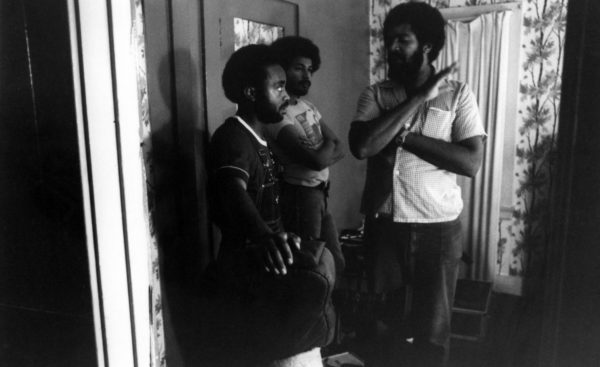

The Elections Committee submits this final slate of Candidates for the 2019 Board Election for the consideration of AMIA Members.All candidates are running for two-year terms.
Your ballot will include voting for three Board members, and President of the Board. They will join five continuing members of the Board of Directors.
The 2019 AMIA Board and Officers Election opens Friday, August 23 and will close on September 20. Ballot information, including your voting password will be emailed to all eligible members by August 23, 2019. If you wish to request a paper ballot, please contact the AMIA Office and one will be sent. Paper ballots must be received no later than September 20, 2019 at 5:00pm (PDT).
All votes are anonymous and only the final election results are tallied. The ballot will require a 25% quorum to be valid, or 204 of 816 eligible votes.
The Ballot will close September 20, 2019 at 5:00pm (PDT).
 Snowden Becker
Snowden BeckerRelevant Experience. Member and regular conference attendee since 2001; founding chair, AMIA Small Gauge & Amateur Film Interest Group; prior service as Secretary of the AMIA Board, 2013-2014; faculty sponsor for UCLA AMIA Student Chapter, 2012-2019; Editorial Board Member, The Moving Image, 2005-present. Selected professional experience: Co-founder, Home Movie Day and the Center for Home Movies; adjunct faculty (2006-present) and academic administrator (2012-2019), UCLA Moving Image Archive Studies MA and MLIS degree programs. Former jobs include Public Access Coordinator, Academy Film Archive; Editor/Applications Analyst, J. Paul Getty Museum Department of Interactive Programs; Digital & Media Archivist, Japanese American National Museum; and service work including waitress, bartender, retail sales, software support and training. Other memberships: Scientific Working Group on Digital Evidence (Video Committee), National Digital Stewardship Residency Advisory Group.
What would be your goals as a member of the AMIA Board? Having previously served on the AMIA Board, and having a good sense of what any one Board member can achieve during their term, my goals this time around are modest but important:
1) Help keep the organization solvent and ensure we are delivering maximum value to our membership and the publics we serve, which is always a moving target;
2) Work to increase (free) access to the annual conference and informational resources for media archives and archivists, especially the under/unemployed and those working for underfunded institutions;
3) Advocate for the needs of new members of the community and mid-career professionals, especially those from underrepresented groups who are most at risk of burnout or career roadblocks, and most in need of the support and mentorship professional organizations like AMIA are intended to provide; and
4) Strengthen AMIA’s relationships with colleagues in other disciplines and intersecting professional domains, in order to increase awareness of what audiovisual archivists do, how we do it, and why it’s so important.
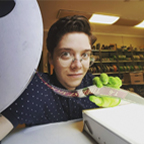
Relevant Experience. I became an AMIA member after attending my first conference in 2016 where I was blown away by the kindness and comradery granted to me by my fellow members and attendees. For the past year I have served as Co-Chair of the LGBT Committee and formerly served as Co-Executive of Ryerson University’s AMIA Student Chapter.
I currently work as an Archives Assistant at the University of British Columbia’s Okanagan Special Collections and as a Metadata Analyst for the Transgender Media Database and will be pursuing my MLIS at Western University in Fall 2019. I have presented on audiovisual preservation at conferences in Canada and the U.S., including the 2017 AMIA Conference. I entered this field after pursuing my Master of Arts in Film + Photography Preservation and Collections Management and have worked with archival collections at Visual Studies Workshop, The ArQuives, Ryerson University, and The GLBT Historical Society Archives.
What would be your goals as a member of the AMIA Board? As a member of the AMIA board I would bring an open mind and a willingness to learn and to serve. I would approach my role similarly to sitting on a reference desk: I am here to help you and connect you to the support or the resources that you need. As someone relatively new to the field I am open and interested in the views of those who have come before me and have more experience than I, but I also bring a unique perspective in a rapidly changing job market. Diversity and internationalization would be particular focuses for me. As an LGBT+ person, and as a Canadian, my desire is to make our members, non-members, and guests, feel welcomed and included in our spaces. I hope to make our association and events accessible to people from varying geographic and economic backgrounds. To this position I would bring my experience as Co-Chair of the LGBT Committee where I have worked with my colleagues to create an inclusive environment at our conferences, alongside co-facilitating meetings and a focus group related to LGBT audiovisual preservation and the issues facing LGBT students and professionals. I am currently working with my co-chair to design a survey in order to better advocate for at-risk collections and perform effective outreach to LGBT+ archives. I’m a firm believer in active assessment and would use a combination of active listening and solicitation in order to best assess and fulfill the needs of our members.
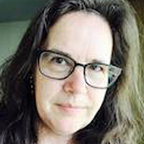 Andrea Leigh
Andrea LeighRelevant Experience. AMIA Board of Directors (current), AMIA Cataloging and Metadata Committee (1999-current), Moving Image Editorial Board (2008-2018), Moving Image Collections (MIC) Education and Outreach Committee chair (2002-2008), founding vice-president of AMIA Student Chapter at UCLA (2000-2002); consult and lecture on moving image descriptive standards and practices; published articles in The Moving Image, American Archivist and Cataloging & Classification Quarterly.
Since 2008, Moving Image Processing Unit Head at the Library of Congress Packard Campus for Audio Visual Conservation. Previously a cataloger and metadata specialist at the UCLA Film & Television Archive (2000-2008); held positions at the UCLA Library, Cal State University at Northridge, Walt Disney Company, and Creative Artists Agency. M.L.I.S in Information Studies and B.A. in Theatre Arts from UCLA.
What would be your goals as a member of the AMIA Board? As a current Director of the Board, I remain a strong advocate for actions that promote diversity and inclusion and efforts that engage and broaden our outreach to other communities. I applaud AMIA’s commitment to fund and support community archiving and I would like to contribute more towards strengthening our message that AMIA has the ability to mentor, document, and provide expertise in collecting, preserving, digitizing, contextualizing, and re-purposing moving images.
I was involved in organizing AMIA’s presence at the Annual American Library Association Conference, where we heard from students interested in opportunities promoting greater discovery and use of audiovisual collections. We heard from public libraries interested in getting help in organizing introductory classes on basic practices to care for home movies and videos. I contributed to getting AMIA’s Archival Screening Night on the road, with a world premiere screening held at the National Gallery of Art. Plans are in place to increase bookings to more widely promote the unique collections and preservation work of AMIA members and archives.
Most importantly, I want to give back to AMIA what AMIA has given to me – a dedicated and welcoming community that respects different voices, mentors new leaders, and nurtures emerging skills, knowledge, and abilities.
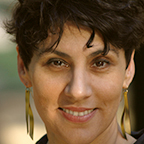 Regina M. Longo
Regina M. LongoRelevant Experience. I have been a member of AMIA since 2000. I was a founding member of the Nitrate Committee, and served for several years on the Scholarship, Advocacy, Publications, Education, and Conference Committees, including 2 years as Conference Co-Chair. I received the 2017 Alan Stark Award for founding the Albanian Cinema Project (ACP). ACP began in 2012 to bring assistance to the National Film Archives of Albania (AQSHF)— to preserve, restore, and promote Albanian film heritage. I assembled a coalition of archivists, filmmakers and cinephiles, and partners like AMIA, FIAF, the Film Foundation, the US State Dept. and the Albanian Ministry of Culture for 5 years of capacity building work. In 2018, I became the Media Archivist and Lecturer in Modern Culture and Media at Brown University, where I support collections and preservation and educate future generations of media makers, critics, and archivists.
What would be your goals as a member of the AMIA Board? Since graduating from the Selznick School in 1999, I’ve worked as an archivist, educator, archival researcher, academic publisher, exhibition designer, and not-for-profit director in government archives, universities, and multimedia firms. In 2012 I earned my PhD in Film & Media Studies. I’ve worked mostly in the US, but I’ve spent years working on projects in Albania and Italy. AMIA has done important work advocating for diversity in the profession and increasing access to archives and training, yet we have simultaneously witnessed a sharp decline in permanent, full-time employment opportunities, and the proliferation of the gig economy across archives globally. The cost of training continues to increase, yet the potential for gainful employment hasn’t been on par. I have struggled to find a position where I can put my passion and skills to work and earn a living wage. As a 1st-generation college graduate, I worked in food service and retail, even in grad school. I understand what it takes to stay committed to a profession that doesn’t always reciprocate. AMIA has made real progress in creating standards for professionalization, access, and advocacy. Yet, the same support is not always demonstrated for the people doing the work. At each annual conference I have conversations with members about their struggles. In times of economic and political unrest, we must stay committed to supporting each other. As a Board member I would be well positioned to actively voice these concerns for the membership and continue to push for more equity in the field.
 Greg Wilsbacher
Greg WilsbacherRelevant Experience. AMIA became part of my professional life 15 years ago when I began curating the Fox Movietone News Collection at the University of South Carolina. During that time I served on and chaired committees, presented at the annual conference, organized and chaired sessions, exhibited a poster, and wore the vendor’s hat in the vendor cafe. I have loved it all.
I have a strong commitment to service and believe in getting things done. I launched the AEO-light project to provide free, open-source software for our community, sustaining it through two rounds of development. I currently manage the United States Marine Corps Film Repository project, which is preserving, digitizing and making accessible 18,000 films.
In my position, I regularly engage and work with diverse audiences ranging from the general public to private donors and even legislators. I am ready to advocate for you and for our community.
What would be your goals as a member of the AMIA Board? AMIA’s membership and the Board have made a commitment to honor diversity in our field. I begin by affirming my dedication to this priority whether or not I am elected to the Board. I am proud that during my term as Chair of the Election Committee, we submitted the first slate of candidates for the Director positions comprised entirely of women.
There is more for the Board to do. Sustainability of the profession itself looms as a major issue confronting us all, whether we work primarily with film, video, or born-digital content. Funding is certainly a part of this problem, but there are larger, strategic questions we should be asking.
Are we providing the right skills to those entering the profession? Are we effectively connecting them to networks beyond traditional cultural heritage institutions? Are we actively learning from new entrants into the field? How do we adapt and grow in the midst of rapid technological and institutional change while staying true to our core values?
AMIA cannot “solve” its sustainability issues alone. However, we can look carefully at ourselves and refine our existing relationships within the cultural heritage sector. Perhaps more importantly, we can foster relationships with other communities that would benefit from the values, talents, and expertise of our members and be open to seeing our own work through the eyes of others. It will take years to address these questions. I want to give my time to the effort.
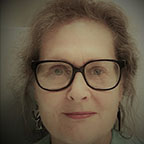 Caroline Yeager
Caroline YeagerRelevant Experience. Caroline Yeager is Assistant Curator in the Moving Image Department (MID) at the George Eastman Museum. She joined the staff in 1998 after graduating from The L. Jeffrey Selznick School of Film Preservation. She holds a Master of Fine Arts from Temple University, Philadelphia, PA, and a Bachelor of Science from SUNY Brockport, NY. She develops and manages grants for the MID, supervises special projects for the department such as the renovation of the museum’s Dryden Theatre and the 2018 Domitor Conference, and teaches Curatorial Administration in the Selznick School. She has curated exhibitions including Hollywood Lost: The Power of Louise Brooks (2006), Reel Histories: Motion Pictures and the Civil War (2011), and film programs for the Dryden Theatre. As a member of AMIA and SEAPAVAA, she has presented on conference panels for both associations. She was co-chair of AMIA’s Advocacy Committee for eight years.
What would be your goals as a member of the AMIA Board? Should I be elected to the AMIA Board, I have two goals that I want pursue for the benefit of fellow members and the association. The first is to create a path to Accreditation for moving image archivists in order to enhance our professional standing in the archival field, to improve pay equity for our members, and to raise public perception of the role we play in safeguarding the cultural heritage of moving images and documentation. The second goal is a direct extension from my years on the Advocacy Committee: to continue raising archival awareness to the dangers of climate change. AMIA members have the strength, talent, and experience to create practical solutions for the preservation of the world cinema heritage in an age of global warming, rising sea levels, and increasingly dangerous weather patterns. AMIA can be a leader in fostering partnerships and cooperation among its global members to safeguard endangered moving image collections worldwide.
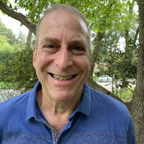 Dennis Doros
Dennis DorosExperience. In 1990, I co-founded Milestone Films with my wife (and fellow AMIA member), Amy Heller. Working with film archives and labs around the world, we have restored and distributed independent films, including works by Charles Burnett, Billy Woodberry, Kathleen Collins and Kent Mackenzie. Martin Scorsese, Barbara Kopple, Steven Soderbergh, Thelma Schoonmaker, and Jonathan Demme have helped promote Milestone releases. For the last twelve years, I have been a consultant to Turner Classic Movies. Amy and I have been awarded the Arthouse Convergence Spotlight Lifetime Achievement Award, National Society of Film Critics’ Special Archival Award and its Film Heritage Award (five times), the NY Film Critics Circle’s Special Award (twice), the LA Film Critics Legacy of Cinema Award and the Film Preservation Honor from Anthology Film Archive. I am a 21-year member of AMIA, a four-term member of the Board of Directors, and the grateful winner of AMIA’s William O’Farrell award.
Goals. For those who don’t know me personally, I had a minor heart-attack in March. I am grateful to the AMIA office, board and members who helped me out over this time. With excellent care and lifestyle changes, I have fully recovered. It also made me reflect on the goals and strategies for our organization.
I have run four times for the Board on my desire for inclusion and diversity and thanks to the Board, we have had real accomplishments in the past few years. These efforts, however, are restrained without financial development. AMIA is a non-profit organization with a shrinking number of funders due to mergers. We must create public recognition of AMIA and the work of our members so funding our organization is a better “investment” for these companies. To this end, I am working on the traveling AMIA ASN Roadshow, as well as future programs like AMIA Awards to increase funding for more travel grants, benefits, programs and opportunities for our members.
I have also reached out to some of our more experienced members of AMIA to form an emeriti or founders committee to help in development, mentorship and education. There are many members. who having left the board or committees, are desiring a new way to contribute.
As always, I feel the President of AMIA works for the membership and I would love to hear of your hopes, needs, and aspirations for our organization and our profession — and to find ways to put them into action.
 Patricia Kenny
Patricia KennyAMIA has been an integral part of my career and I would like to continue my journey with AMIA as its President and continue to build on partnerships while driving the awareness of AMIA in new areas of the field.
I have been actively involved in the archive community for almost 20 years and I have been active in different committees within AMIA. As part of the Development Committee, I have helped to expand our relationships and partnerships with new companies and members. My current job in business development keeps me very aware that developing a larger network of resources for our organization to use is critical in our ability to initiate new projects, to continue our work towards diversity and inclusion, to support outreach, and to provide more educational opportunities
AMIA plays a critical role in the archival community but I would like us to reach outside our core to attract new members whose focus is emerging technologies. It’s said that “innovation distinguishes between a leader and a follower.” Our greatest asset within AMIA is all the knowledge and experience of our members, I would love to expand on this by creating more partnerships and synergy amongst the industry groups and create more free flowing idea exchanges within it. I would like to build on what we can provide for our students and new professionals, by providing more opportunities for them to network with each other, and with those of us who have been working in the field. Finding ways to share our knowledge, as well as creating an in-depth mentoring program is an investment in their future and the future of the Currently, I’m working to develop a regional roundtable model to bring members together to focus on issues around media and technology.
AMIA is made up of passionate people with unparalleled experience and expertise. My goal as a candidate is to continue building on what AMIA has created, by increasing and developing our resources, relationships, and to work towards strengthening our presence and partnerships within the community. This will allow us to continue to lead and bring that passion and knowledge to current and new members.
Thank you for your time and consideration.